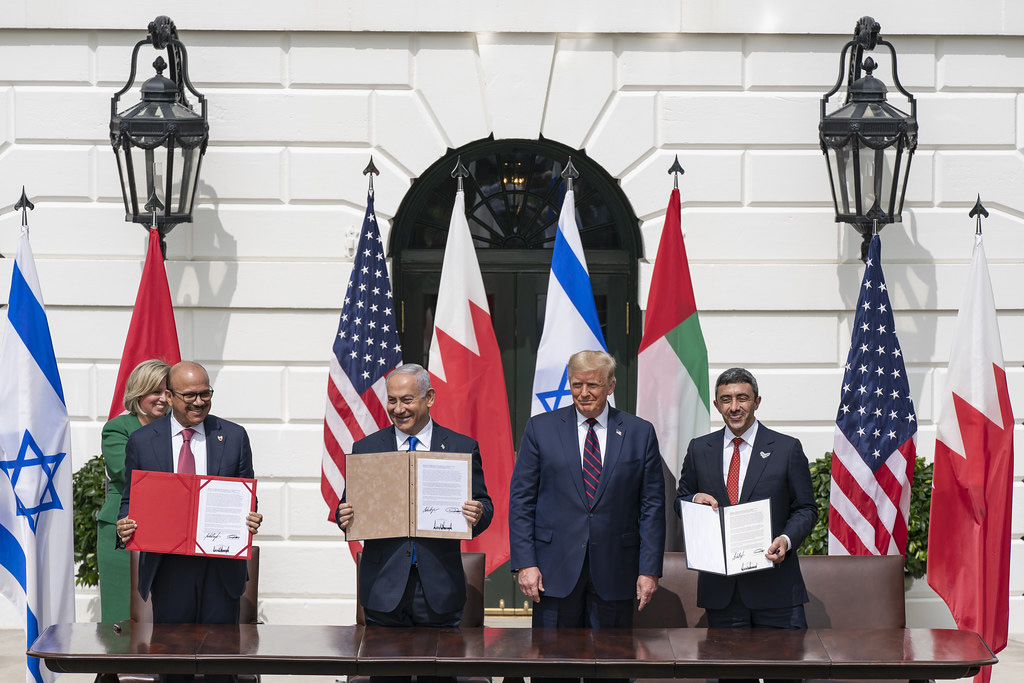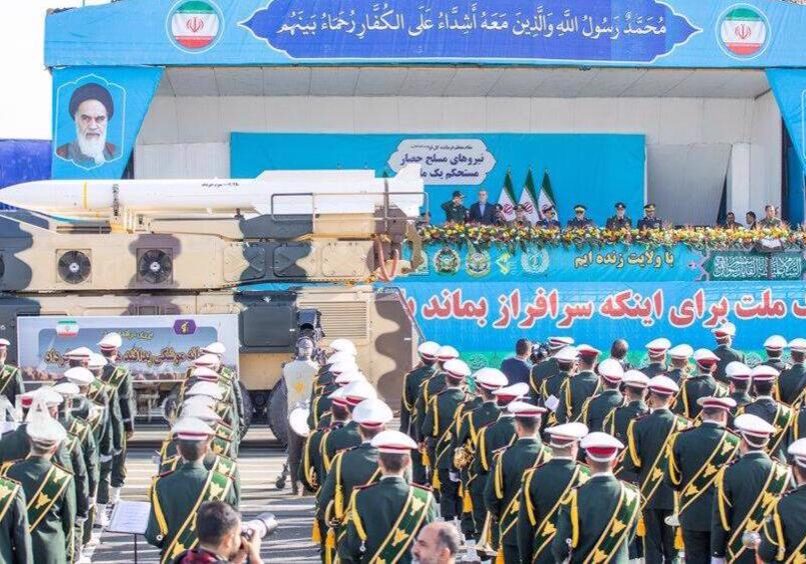Australia/Israel Review
Trump and the Middle East
Nov 20, 2024 | Ray Takeyh

By any standard of measurement, Joe Biden’s Middle East policy was a failure. A cascade of misjudgements and misapprehensions has caused the region to be dangerous and unstable. All this gives the incoming Trump Administration a chance to usher in policies to empower our allies and weaken our adversaries.
Even in the post-October 7 Middle East, the core of the problem remains Iran. Biden’s refusal to enforce sanctions allowed the Islamic Republic to sustain its patronage networks at home and arm its proxies abroad. It is inconceivable that the mullahs did not know that their lethal Palestinian protégé, Hamas, was planning a brutal attack on Israel. They must have surely anticipated an Israeli retaliation, but assumed that the international community led by the United States would step in and impose an armistice on Israel. Indeed, the Biden team and the Europeans were eager to play that role with their various proposals for prematurely ending the conflict. But then the much-maligned Binyamin Netanyahu flipped the script and took on Israel’s enemies, at least in its near-abroad.
The Islamic Republic has rarely been weaker in the Middle East. Its proxies are battered. Hamas can no longer reconstitute itself as an effective militia capable of launching meaningful attacks on Israel. Much of Hezbollah’s leadership has been decapitated, and the organisation is in disarray as Israel continues to pick off its leadership cadre.
In the meantime, Iran’s once-formidable missile force has been exposed as hollow. On two occasions, the mullahs directly aimed a barrage of projectiles at Israel, and both times, they failed to reach their designated targets. Even a limited Israeli response demonstrated that Jerusalem could penetrate Iran’s air defences and hit any target at any time. After spending billions of dollars on missiles of various trajectories and on Russian air defence networks, Iran stands exposed.
The new Trump Administration is sure to revive its two trademark policies toward the Middle East that proved successful last time around. We can count on a revamped strategy of maximum pressure against Iran that will once more drain its treasury. The sanctions are needed more urgently today, as Iran seeks to rehabilitate its proxies. In short supply of money, the Islamic Republic is bound to recede its imperial aspirations.
The extension of the Abraham Accords that saw a string of Middle Eastern countries making peace with Israel is also likely to be turbocharged with a particular focus on Saudi Arabia. It is the conceit of the commentariat that Saudi Arabia will not make peace with Israel so long as there is no meaningful progress on an independent Palestinian state. However, the new leaders of the kingdom, led by Crown Prince Mohammed bin Salman, have different priorities than their elders with their fixation on the intractable Palestinian problem. Salman wants to modernise his country, develop the non-oil sector, and access modern technologies. All this means integrating into the global society as opposed to waging a crusade on behalf of the Palestinians.
Today, Riyadh spends more of its time worrying about the Persian menace to the north than a Palestinian state in the east. The Biden years convinced many in the kingdom that America was not serious about deterring Iran. And so long as this was the case, they would hedge their bets and pay some deference to the mullahs’ sensibilities, even on the Palestinian issue. The key to unlocking further progress on the Abraham Accords is still a robust policy toward the Islamic Republic.
All this does not require massive deployment of US forces. The United States has too many competing priorities, and the American people are not eager to embark on new missions in the Middle East. But this does mean a more concerted effort to build up our alliances and give Israel both a free hand and the necessary munitions to defend itself. It means enlisting Saudi Arabia into the alignment of states crafted by the Abraham Accords, which would be easier to do if Iran were set back on its heels.
Lurking behind all this is Iran’s nuclear program. In the past few years, the program has advanced as Iran has accumulated highly enriched uranium and built more sophisticated centrifuges. There are many voices in the Revolutionary Guards pressing for moving ahead and actually constructing nuclear arms. Still, Supreme Leader Ali Khamenei must consider the fact that his intelligence services are leaky, and his air defences are easily penetrated. All this and the close proximity between Israel and America may give him some pause before taking the most provocative step of his over three decades in power. Khamenei tends to be cautious when danger veers too close for comfort.
Trump’s most significant asset is his record of achievement in the Middle East from his previous term and his unpredictability that unsettled the theocratic state. He took the extraordinary step of ordering the killing of Iran’s terrorist mastermind, General Qassem Soleimani, and he proved that he could impose debilitating sanctions on Iran despite European reservations. At this late juncture, only an America that stands with its allies and makes its red lines clear can deter a mushroom cloud over an already turbulent Middle East.
Ray Takeyh is a Senior Fellow at the Council on Foreign Relations. © The National Interest (Nationalinterest.org), reprinted by permission, all rights reserved.
Tags: Iran, Israel, Middle East, Saudi Arabia, United States






